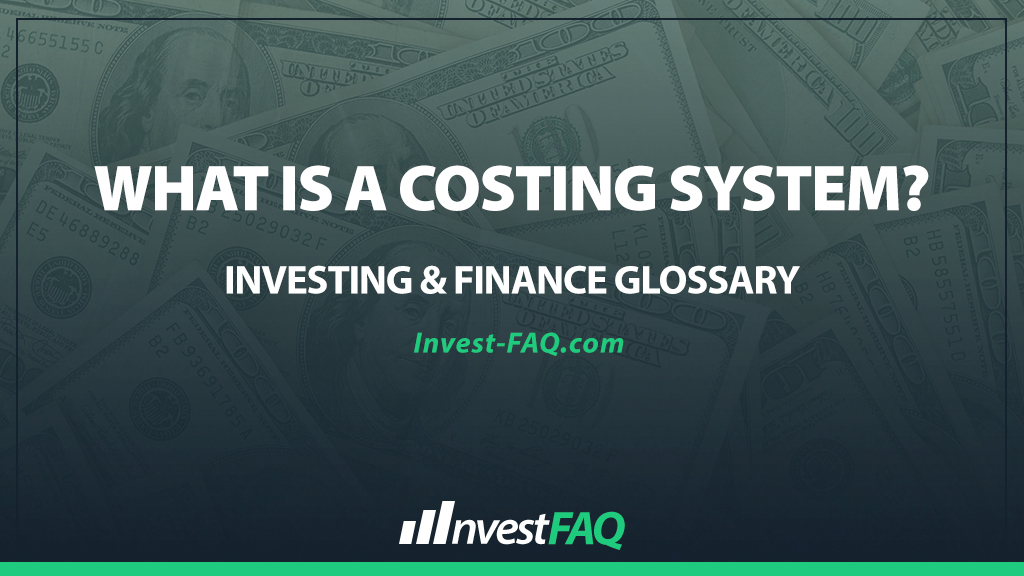
Costing System
Contents
A costing system is an accounting framework used by businesses to determine the cost of their products or services. It involves methods and procedures for collecting, classifying, allocating, and reporting such costs, facilitating decision-making on pricing, budgeting, and financial analysis.
In business, a costing system is essential for accurately pricing products, controlling expenses, and identifying opportunities for efficiency improvements. Different industries and companies might adopt various costing systems based on their specific operational needs and the nature of their products or services.
Common types include job costing, used for unique or custom orders; process costing, suitable for mass production; and activity-based costing (ABC), which allocates overhead costs based on activities that drive costs.
Example of a Costing System
Imagine “Custom Furniture Ltd.,” a company that specializes in making bespoke furniture. It uses a job costing system to track the costs of each piece of furniture made. For a custom table, direct materials cost $200, direct labor costs amount to $150, and allocated overheads are $100. The total cost recorded for this custom table is $450.
In this scenario, Custom Furniture Ltd. employs a job costing system to accumulate the costs associated with producing a specific table. This system allows for the precise tracking of direct materials and labor costs while allocating overheads based on a predetermined rate or base, such as labor hours.
Understanding the total cost ($450) is crucial for setting a selling price that covers costs and achieves a desired profit margin. It also provides insights into which aspects of the production process are most costly, guiding potential cost-saving measures.
Types and Uses in Business Scenarios
Costing systems are applied in various business scenarios, including:
Pricing Strategies: Determining the cost of goods or services to set competitive prices that ensure profitability.
Financial Reporting: Providing accurate cost information for financial statements in compliance with accounting standards.
Cost Control: Identifying and analyzing deviations from expected costs to control expenses better.
Strategic Planning: Informing long-term business strategies by analyzing product or service cost structures.
The adaptability of costing systems to different business needs makes them a valuable tool for financial management and operational planning.
Significance for Investing & Finance
From an accounting perspective, the significance of a costing system lies in its role in:
Accurate Product Costing: Ensuring that the costs associated with products or services are accurately captured and reported.
Decision Support: Offering detailed cost information that supports strategic and operational decision-making processes.
Profitability Analysis: Helping businesses understand the profitability of different products, services, or customer segments by providing detailed insights into cost behaviors.
Compliance and Standardization: Aiding in compliance with financial reporting standards and promoting standardization in cost tracking and allocation practices.
In summary, a costing system is a foundational aspect of accounting and financial management within a business. It plays a critical role in ensuring accurate cost determination, supporting strategic decision-making, and maintaining financial health.
By adopting an appropriate costing system, businesses can enhance their cost control measures, optimize pricing strategies, and ultimately improve profitability.
FAQ
How does a costing system influence a company’s pricing strategy?
A costing system provides accurate cost information for each product or service, enabling a company to set prices that cover costs and achieve desired profit margins, thereby directly influencing its pricing strategy.
Can the adoption of a different costing system affect a company’s financial performance?
Yes, switching to a more suitable costing system can offer a clearer understanding of costs and profitability, potentially leading to better cost control, pricing decisions, and overall financial performance improvement.
Why is activity-based costing (ABC) considered more accurate than traditional costing methods?
ABC allocates overhead costs based on the actual activities that drive these costs, leading to more precise product costing and profitability analysis compared to traditional methods that may allocate costs less accurately.
How do companies choose the most appropriate costing system for their operations?
Companies select a costing system based on factors such as the nature of their operations, the complexity of their production processes, and the level of detail needed for cost control and decision-making, often after evaluating the system’s alignment with their specific cost management and reporting needs.
